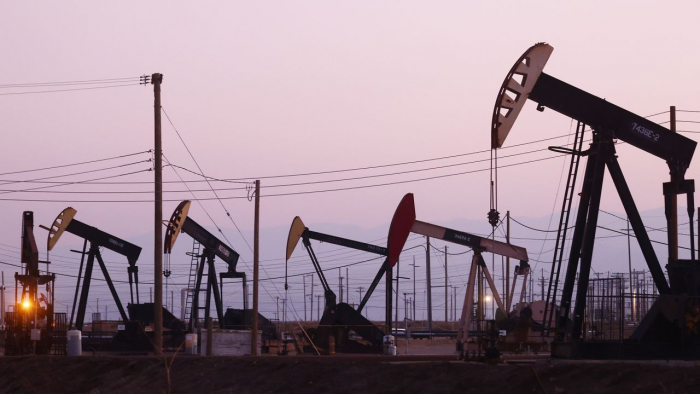US President Donald Trump’s sweeping reciprocal tariffs have now come into effect, with China—currently the world’s largest oil importer—facing 104% import duties, AzVision.az reports, citing Euronews.
Since Trump’s announcement of the new tariffs, Brent crude futures have dropped more than 19% to $60.41 per barrel, while West Texas Intermediate (WTI) futures plunged 20% to $57.06 per barrel—both marking their lowest levels since March 2021.
On Tuesday, China vowed to “fight to the end” following Trump’s threat of an additional 50% in tariffs. The US, meanwhile, remains committed to enforcing the full 104% levies. The intensifying trade war between the world’s two largest economies has once again triggered a broad sell-off in risk assets.
Compounding the downside pressure, eight key members of the Organisation of the Petroleum Exporting Countries (OPEC) agreed last week to accelerate the unwinding of earlier production cuts. Meanwhile, Trump’s so-called “secondary tariffs” on major oil exporters such as Venezuela, Iran, and Russia may offset some of the production hikes. However, recession fears heavily overshadow geopolitical tensions at this moment.
Against this backdrop, the US Energy Information Administration delayed its monthly Short-Term Energy Outlook report, originally due on Tuesday. The agency cited the need to “re-run our models to account for the most recent market developments” and said it would now publish the report on Thursday. In response to the deteriorating outlook, Goldman Sachs slashed its Brent crude forecast to $40 per barrel by year-end, implying a further 36% drop from current levels.
China is also expected to ramp up its stimulus efforts, both fiscally and monetarily. At its annual meeting in March, Beijing reaffirmed a 5% GDP growth target for 2025 and announced fresh stimulus measures amid escalating tariff threats from the US. The government has also raised its budget deficit target to 4% of GDP—the highest in three decades. Analysts expect further policy support to be announced soon, particularly in response to the trade war.
AzVision.az
More about:
















































